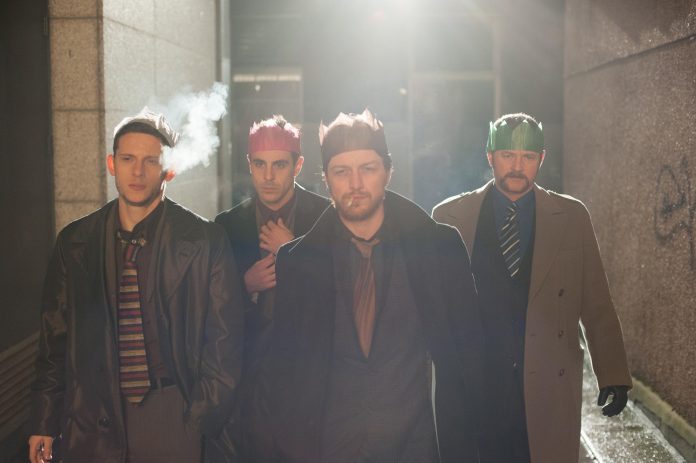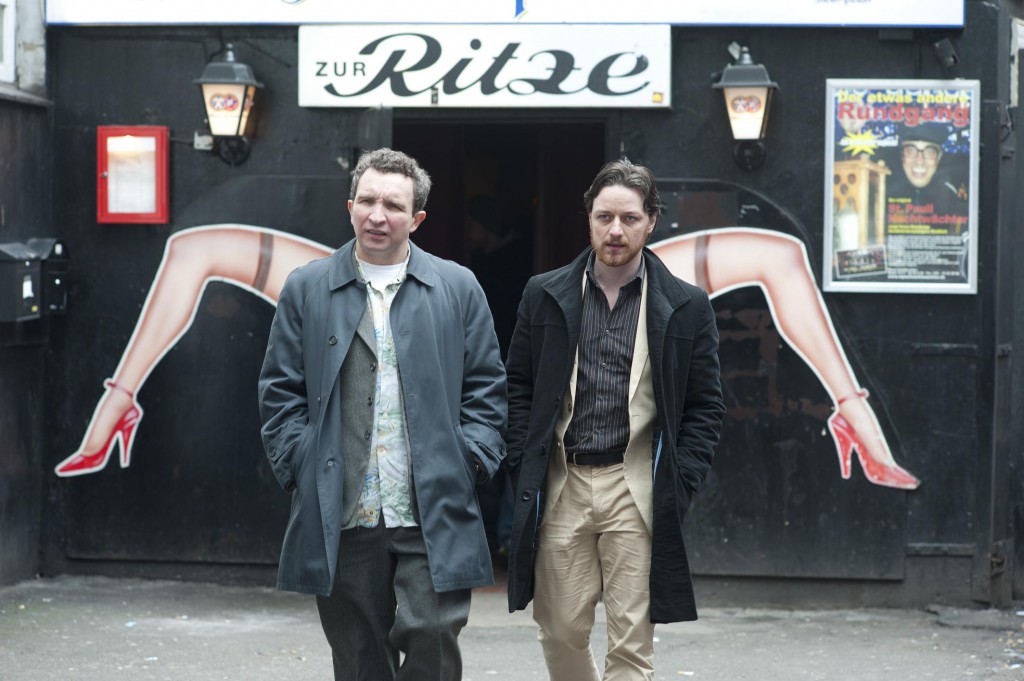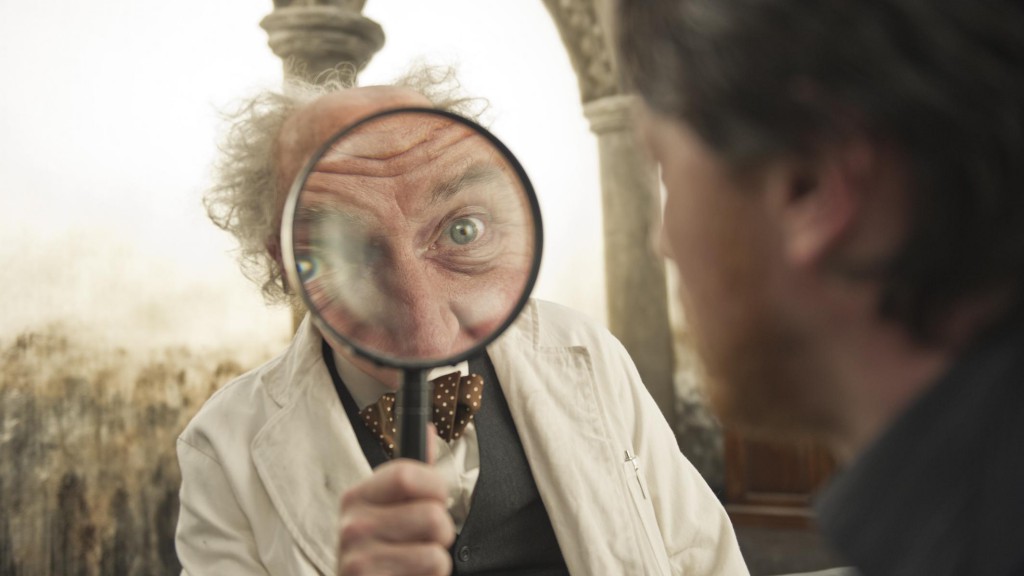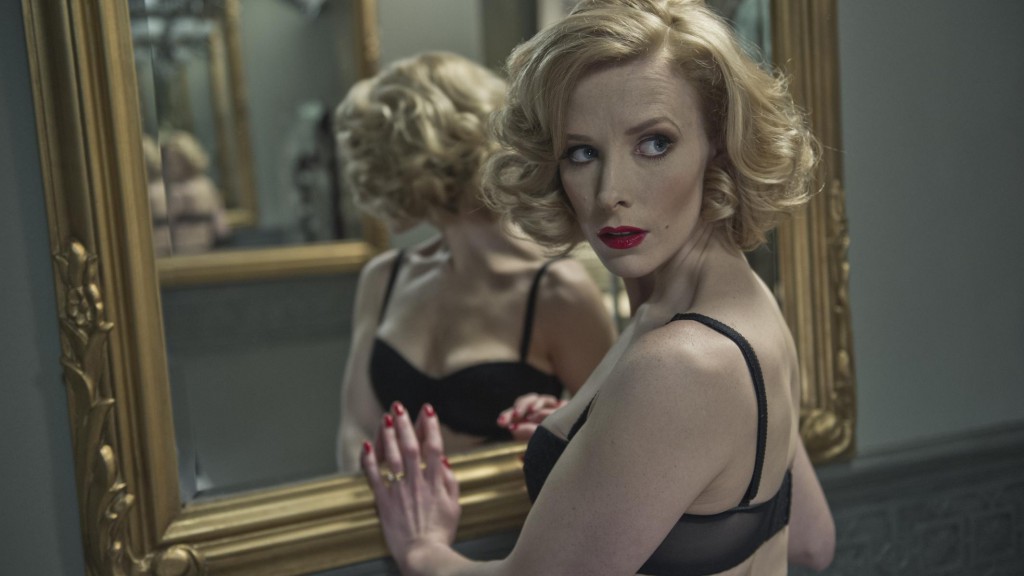
Along with James McAvoy, who as Filth’s leading actor plays hugely against type and transforms himself into something we have never seen of him before, credit also goes to the film’s audacious director, Jon S. Baird, who cast McAvoy in the part and who worked hard to bring Irvine Welsh’s creation to cinematic life. In our interview, the Aberdeen-born director, who has made his debut with the hooligan-drama Cass five years ago, explains why adapting Filth was such a passion project for him and discusses the challenges of bringing Irvine Welsh’s prose to the big screen.
____________________________________________________________________________________________
Filmfutter: On Filth, you were the producer, the director and the screenwriter. Why was this project of such great importance to you?
Jon S. Baird: It was the first of Irvine Welsh’s books that I have read. I have read all of his novels now, but “Filth” is still my favorite. It always holds a special spot in my heart. I think the fact that people tried to adapt this novel into a film before and for whatever reason it didn’t happen, made it a challenge. Others tried to do it before and they couldn’t. So the question was: “Can I do it?” I just really love the character, how despicable and complex he was. Those were really the reasons that made me want to do it.
FF: Have you heard any feedback from Irvine (Welsh) on the adaptation yet?
JSB: Yeah, Irvine became a very close friend over years. I’ve known him for five years now. It was nerve-wracking when I sent him the first draft of the script. He lives in Chicago and I live in London. I sent it to him over night and because of the time difference I had to wait until the next morning for a reaction. I was nervous, waking up next morning. I received an e-mail from him. I opened it and it said: “I love it. Don’t change a word”. I’ve still got that e-mail. That was great, to get this kind of support from the beginning. Then he came on set and he did a cameo in the film, which never made it into the finished version. Unfortunately we had to cut it out. When he saw the finished film, he was very happy with it, in particular with James’ performance. He said a few times to people that he feels that James’ performance as Bruce Robertson comes closer to the character that he wrote in the book than any other of his characters that have been adapted on film. So, he’s a big fan and he supported us a lot. He has done a lot of press work for us.
FF: Was he in any way involved in the creative process?
JSB: Actually he wasn’t at all. He has done that previously on The Acid House and he felt that he didn’t do the script justice. It was too much like the book. So this time he said: “You’ll have to do it yourself” and he let me do it. What he was involved with was coming to different meetings with financiers – not necessarily to talk about finances, but just to show that as the author he thoroughly supported this project.
FF: I have read a story about Irvine Welsh promising to get a tattoo in honor of this film should it get ever made and that he actually went through with it recently. Is this story true?
JSB: Yep. The day that I saw the tattoo was the first day that he saw the film. We were in London and Harvey Weinstein was in the same hotel that we sat in and he walked part us and Irvine, who has had a few drinks, shouted “Harvey, Harvey, what do you think of this?” And Harvey just kept on walking (laughs). But yeah, that’s a true story. He got it done as soon as the film was made. I’ve never believed him that he would do it, but he did.
FF: Would you say that Hamburg plays an important role in the film? Because it’s only a few scenes, but it has been advertised heavily over here.
JSB: It’s a hugely important part of the film because it serves as kind of a hinge. It’s where the two parts of the film meet – the big broad comedy strokes end and the darkness takes over. It’s when Bruce Robertson starts hallucinating more and starts realizing what he is doing to people. When he comes back from Hamburg he starts slowly losing control over things. So even though that is mostly just a montage, it is crucial to the story. It’s also a very important part in the novel, though it’s not Hamburg in there, but Amsterdam.
FF: What made you choose Hamburg then?
JSB: Two things really. We had a German co-producer and we knew we would shoot at a red-lights-district. And obviously, in Europe there is the one in Amsterdam and the “Reeperbahn” in Hamburg. We felt that Amsterdam has been used so much because it is always the obvious place to go. Since we had a German co-producer we thought it’d make sense to come and shoot in Germany, where we got the support and the funding.
FF: Did you have a good time here?
JSB: We had the best time. We spent five days in Hamburg, although we only shot for two days. Trudie Styler was one of the producers on the film and she’s married to Sting, the singer. On one of our days off he was playing in Berlin and a bus took the whole crew over there to see the concert. Next day he came over and we shot a cameo with him. Again, unfortunately we had to cut that out.
FF: Did you and James (McAvoy) have time to go on the “Reeperbahn” privately and have a few drinks?
JSB: No, we never went privately, but we did go for location scouting. I am not even exactly sure where the “Reeperbahn” starts, so I might have actually gone there during that time too, but I wasn’t there knowingly.
FF: Irvine Welsh’s prose is very particular and not necessarily fit for a movie script per se. What was the biggest challenge in adapting it to a screenplay?
JSB: Yeah, absolutely. The biggest challenge in adapting Irvine’s work is finding a cohesive narrative because what he gives you are great characters and great dialogue, but he doesn’t always give you a clear storyline. In Filth it was finding what was going to drive that story. In the book, Bruce isn’t as much disintegrating mentally and psychologically, he’s disintegrating physically. We didn’t think that was strong enough, he had to disintegrate a lot more emotionally. That’s in the book too, but we added the element of mental illness as well, to make it more of a constructive narrative.
FF: The character of Bruce Robertson – do you think that he is to be hated or to be pitied?
JSB: I think both, at different times of the film. I think what’s important is to see that the joke ends up on him. Though I suppose at the very end, the joke ends up on the audience. It depends on the viewpoint. Some people hate him and others actually really really love him and I think that’s a testament to James McAvoy’s work here. I do think that he’s more followable than in the book. Seriously, if you think you hate him in the film, wait until you read the book. As in the film, he’s a character that you basically love to hate.
FF: In the novel, there is the sentient tapeworm, which is used as a narrative device. Jim Broadbent’s character, as Bruce’s psychiatrist, Dr. Rossi, is given the same function. Was the idea to substitute the tapeworm with the psychiatrist something that came to you quickly or did it take you a while to work that out?
JSB: Doctor Rossi’s scenes were actually the first ones I wrote. I was writing sample scenes to try and raise funding for the film. I wrote three scenes with Dr. Rossi and it was more about the tapeworm at that point. Then, as the screenplay came together – the tapeworm became less important than the character of Dr. Rossi. The tapeworm was then shifted more to the side and amalgamated with Dr. Rossi’s character.
FF: What kind of an emotional response would you say Filth evokes in the audience?
JSB: You know what? It has been through so many different screenings and there have been so many different reactions. One thing that I found most encouraging is the reaction it gets from female audiences. In the UK that reaction is very strong and I think the reason behind that is they see what this film is and the heart of Filth is a tragic love story. They see Bruce as a very flawed, tragic character, which is falling apart. A lot of the women, who are coming out of the film, are saying: “Even though he is despicable, I wanted to help him, I wanted to save him”. Guys sometimes don’t get that. Mainly, I just want people to have a reaction – any reaction, regardless if it’s love or hate. There is nothing worse than coming out of a film and just thinking “Yeah, it’s okay”…I’d much rather have the audience hate the film than being indifferent towards it.
FF: It’s not the kind of film that leaves you cold, though.
JSB: Yeah, that’s nice of you to say and hopefully that rings true. When you are making a film you invest so much of your life into it. You invest so much emotionally or, as in this case, also financially, that it makes you think: “What’s the point of doing a film if the viewers don’t have a reaction to it? You’re wasting everybody’s time, including your own.”
FF: What kind of reaction did you have to the novel, when you first read it?
JSB: Amazement. I couldn’t believe what this character was doing or getting away with. I was utterly gobsmacked. The first time I saw the poster, with the pig’s face and the policeman’s hat on it that was such a smack in the ribs to me. That’s the kind of an effect I want our film to have. The book is a lot darker than the film. The film has a lot more comedy to it and it has a heart. The novel doesn’t really have that.
FF: Are you afraid that there are going to be people, who just won’t get the film? Who’ll see it because they think James is cute or they just like his other films?
JSB: Of course you’re going to get that, but that’s the same with every film. But on the flipside, you are also going to have people, who’ll go in, not expecting anything and come out liking it a lot. You’re going to get fans of Irvine Welsh seeing it and understanding it, but also some of his fans, who will think that it’s not as good as the book.
FF: What was your experience of working with James? In real life he’s a sweet and lovable guy, but his character really isn’t.
JSB: James is very intelligent, very intense and he has got a real edge to him. He’s immensely professional, probably the most professional actor, I have ever worked with. He’s extremely knowledgeable about the film industry and about the technical aspects of filmmaking as well. I think, he’d make a fantastic director. I’d love to work with him again.
FF: He’s not the most obvious choice for the role, though. How did you come up with the idea to cast him?
JSB: That’s true. He did some darker roles recently, like in Trance, but we cast him before Trance came out. The only dark-ish role he has done before is in The Last King of Scotland. Basically, James’ agent read the script and she contacted us and proposed to meet James. So we met him and when he walked in and started telling us about himself, his own experiences and his understanding of the character, we just knew there and then, that this is it. We met him at 10 in the morning and by 2 in the afternoon he had the part.
FF: Arguably, the finest adaptation of a novel by Welsh, prior to yours, is Trainspotting. Did you, in a way, feel the shadow of Trainspotting hanging over you when making Filth?
JSB: Never. I think if I had been doing a remake to Trainspotting or the sequel, then I would have felt more pressure. But Filth is a totally different book and it was so difficult to get made and financed, so when I finally started making it, I was just glad that I could make it. I didn’t have time to think about any other films; I just concentrated on making Filth.
FF: Irvine Welsh has written a sequel to “Filth”, called “Crime”. Would you be interesting in directing that?
JSB: I would be, yeah. I’ve spoken to Irvine about it and he said I could have the rights if I want to.
FF: Hopefully it won’t take as long as the sequel to Trainspotting (Porno) that is still being talked about 17 years later.
JSB: Yeah, not sure what is happening there. “Crime” is set in Miami and it’s kind of unlike an Irvine-Welsh-novel because it actually has a clear narrative. It’s about this guy, who has to look after this young girl and keep her away from prostitution. It’s more of a commercial thriller. Irvine has got a place in Miami: I went to visit him a few months ago and we looked at some locations of “Crime”. So, I think it’s a possibility to do, but maybe in a few years time. It wouldn’t be the next project.
FF: It has been five years between Cass, your directorial debut and Filth. Do you have your next project set?
JSB: In the time between those two I did a couple of screenplays, one of which with Studiocanal and Scott Free, Ridley Scott’s production studio. At the moment I am rewriting another screenplay for a studio in LA. It’s a true story, but I can’t say what it is yet. Then I’ve got the rights for comedic novel that has just been released, but again, I can’t say what it is. I’m writing these two things at the moment.
FF: Which recent movie did you personally enjoy?
JSB: Recently…from last year’s Oscar picks, Silver Linings Playbook. It was one of those films, as I was talking about before, in which I went in not knowing much about before and really loved it in the end. The performances in that were fantastic. I thought there were a lot of great movies last year. I also enjoyed Argo a lot. I tend to watch older movies more, like Sidney Lumet, Stanley Kubrick and Woody Allen.
FF: Did you use any of their films for reference, when making Filth?
JSB: Yeah, Clockwork Orange was a major reference, in many respects.
FF: Before the production, Irvine Welsh mentioned Alan Cumming as having a part in the film, I think for the role of Toal (now played by John Sessions). What became of that?
JSB: Yeah, I think it was a scheduling conflict. We were supposed to shoot in September and then we pushed it to January and he was no longer available.
FF: Do you have any actors in mind for your upcoming project?
JSB: Yes, there is one….but I can’t say who it is. But you’ll be the first to know (laughs)
FF: I just hope it won’t be another five years until your next feature.
JSB: Yeah, I certainly hope so too. I hope we start shooting next spring.
____________________________________________________________________________________________
Don’t forget to also check out our interview with James McAvoy on his role in Filth.











